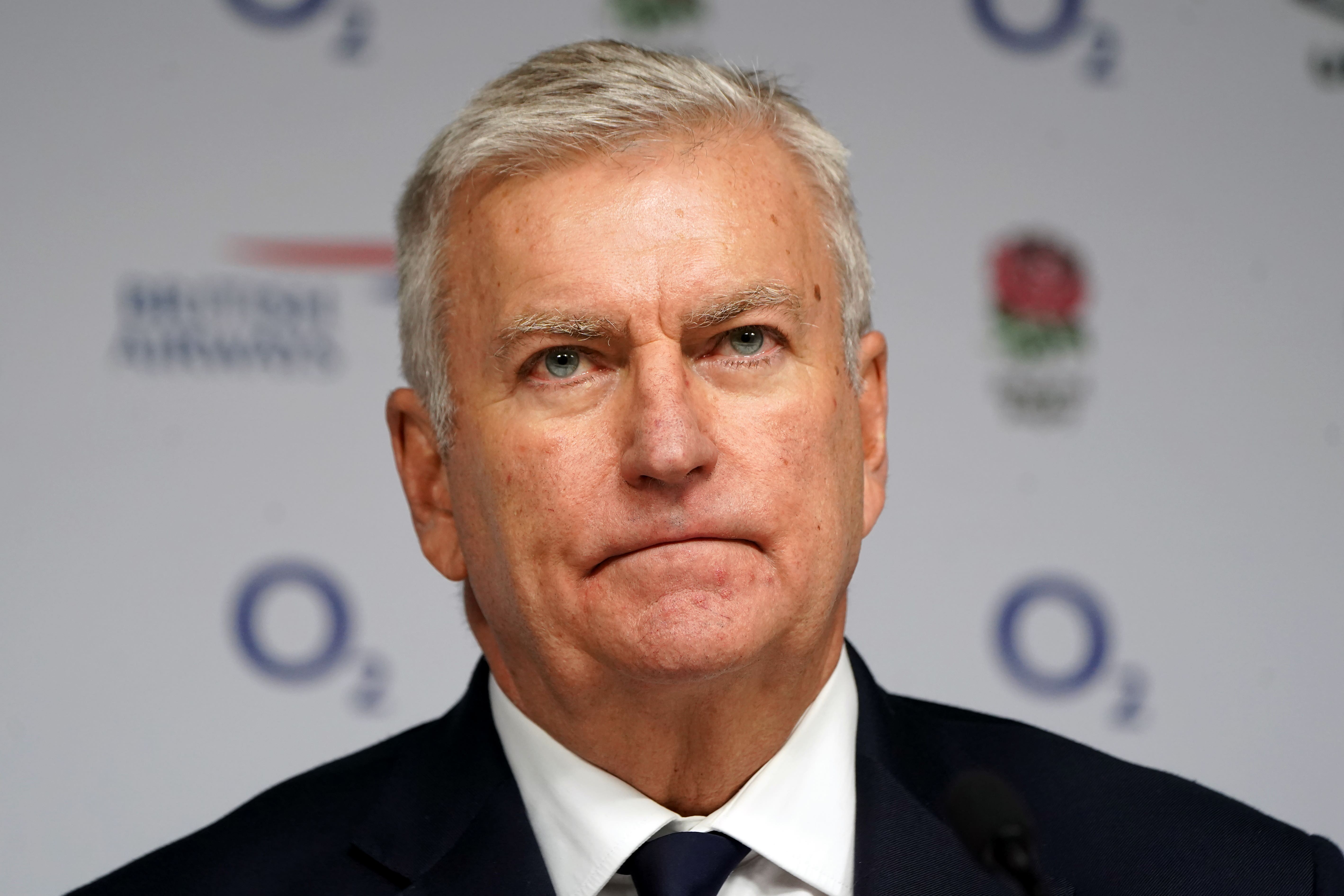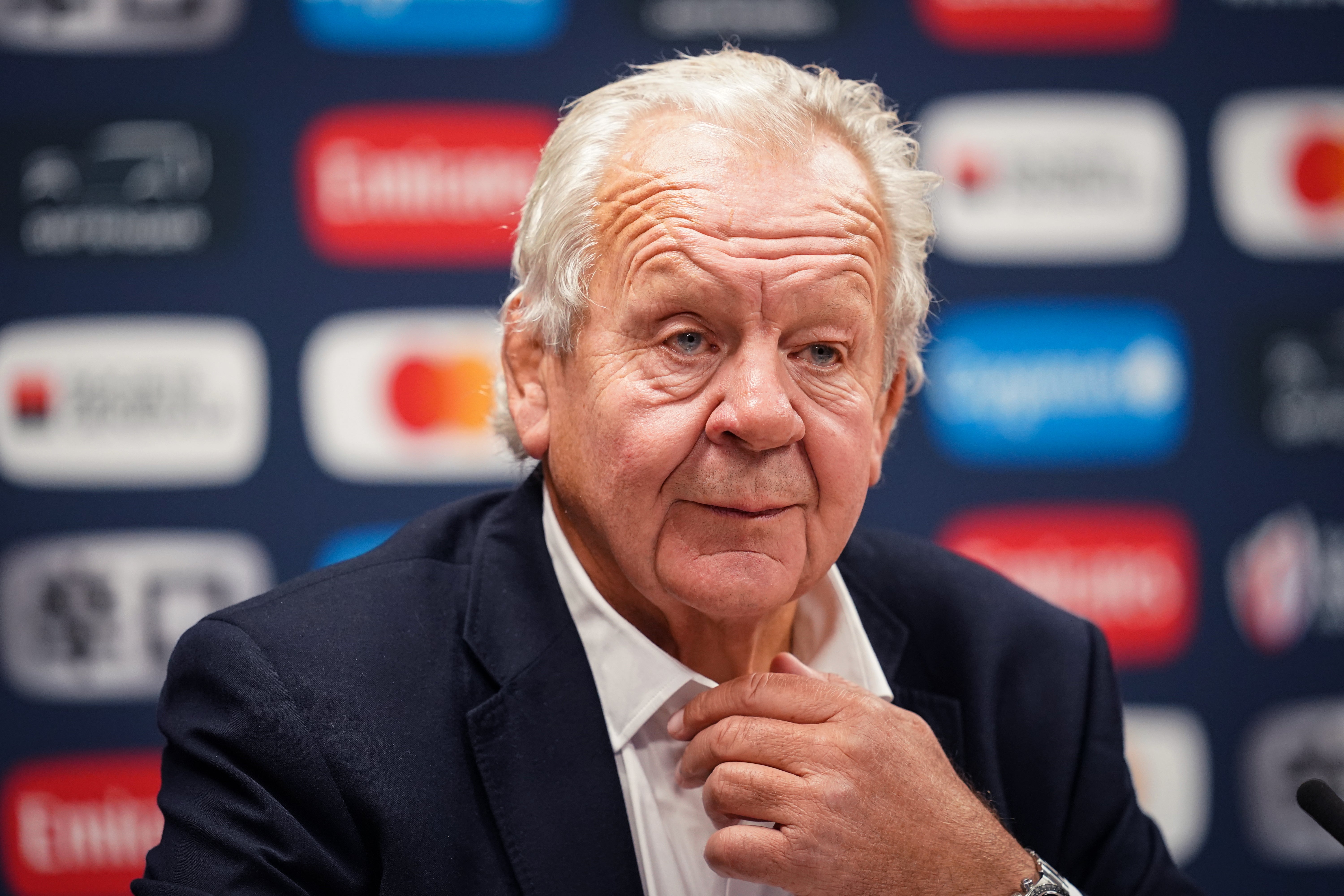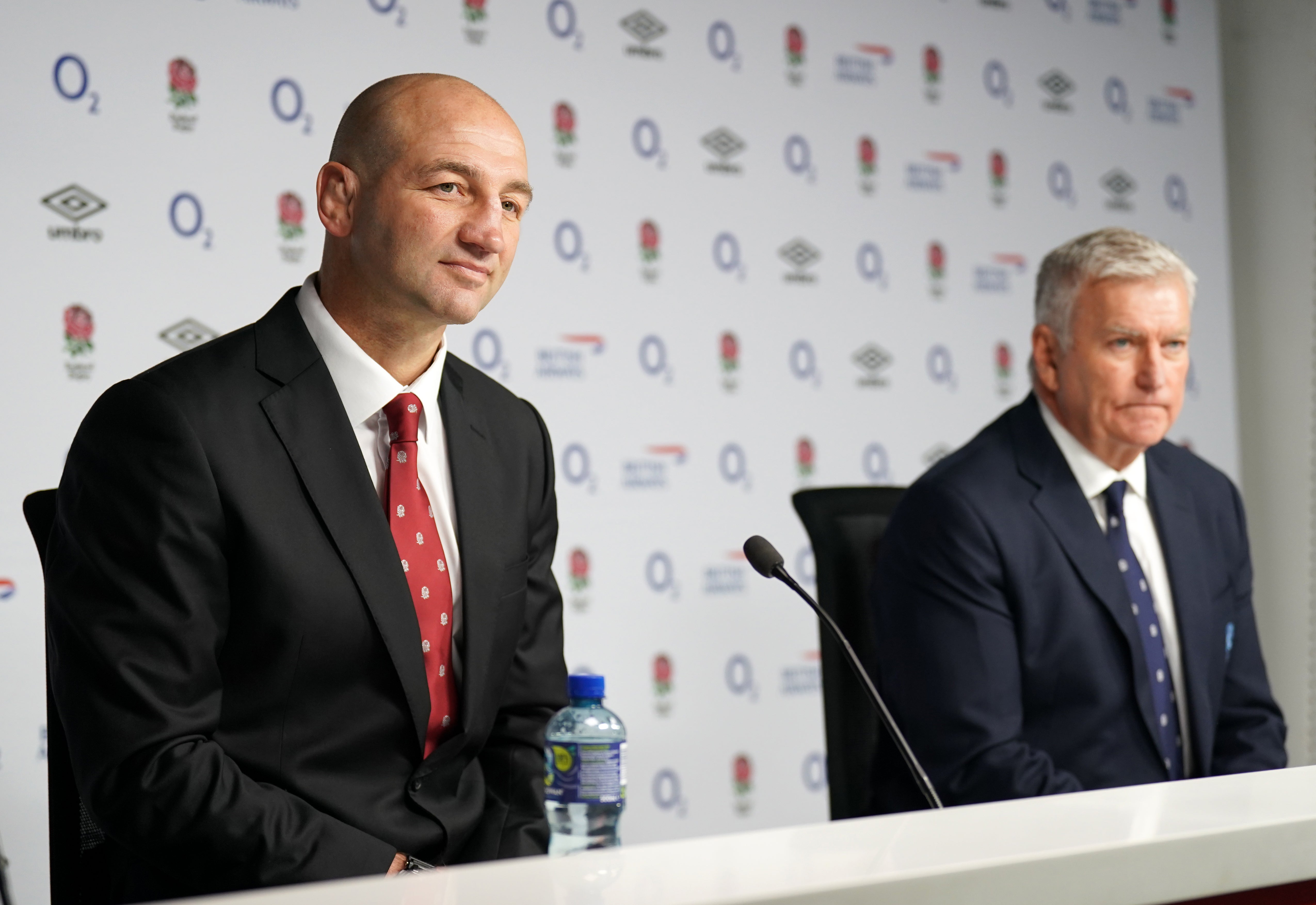
A defiant Bill Sweeney has vowed to continue as chief executive of England’s Rugby Football Union (RFU) until the 2027 Rugby World Cup even as he faces a revolt within the game over his tenure.
Sweeney is facing a special general meeting (SGM) after uproar within English rugby union, both over his acceptance of a large bonus at the end of a financial year in which the RFU reported record losses, and what the rebels perceive as mismanagement of the sport.
With the SGM set for 27 March, the embattled executive insisted that he remains a force for good within rugby and expressed his belief that he is the right man to transform an organisation that he says needs reshaping.
Mr Sweeney refused to apologise for accepting his £358,000 bonus as part of a Long-Term Incentive Plan (LTIP) designed to keep key staff at the organisation. He admitted that he knew it would cause uproar and explained that he had asked to defer the payment.
Constitutionally, the RFU CEO cannot be directly removed from his role by the member clubs, but with chair Tom Ilube already having resigned amid the furore, the SGM is likely to further pile pressure on the under-fire chief. A vote can be taken to request that the RFU board terminate Mr Sweeney’s contract.
But the 67-year-old did not directly confirm that he would step down should that occur, and dismissed speculation that he was looking to walk away after the Women’s World Cup is hosted by England in August and September.
“When the vote comes in, it’s a board decision,” Mr Sweeney said. “I’ve never thought about stepping down.
“I don’t welcome an SGM, but it does bring the opportunity to get a lot of things out on the table that perhaps haven’t been on there before. There’s a lot of misinformation out there at the moment and this gives us the chance to rectify that.
“[Stepping down after the Women’s World Cup] has never been discussed. I saw something about it being timed until the end of the Women’s World Cup because I was getting a bonus for the performance of the women in the World Cup, that’s nonsense. I don’t have any payment related to the performance of the Red Roses at the World Cup.

“I’m certainly committed to go through to the end of this cycle which is the end of 2027. The easiest thing to do right now would be to walk away. Given the challenges, the easiest option would be to say ‘I’ve had enough’. I don’t feel anywhere near that because I still feel I have genuine value to add. I think the moment I looked in the mirror and said ‘I don’t think I am adding any value to this,’ then I would quite happily stand down.”
Mr Sweeney, interim chair Bill Beaumont, and other RFU figures are set to tour the country on a pre-SGM roadshow as they bid to calm clubs ahead of the crucial meeting.
The LTIP was agreed by a previous remuneration committee and accepted by the council. It’s awarding came in a year in which the RFU announced another round of redundancies, with 27 people losing their jobs.
Sweeney admitted that the optics of his bonus are bad, but did not succeed in an attempt to defer the receipt of it.
“I would have preferred for it to have been deferred,” he explained of the LTIP payment. “So whether it was to the end of 2025 or to the end of 2027, that was my preference.

“Going back to why it was set up, it was clearly set up to deliver a certain outcome, which was to retain myself and retain the executive team. Once that was put in place it was contracted that these are the targets, this is what we're asking you to deliver. We achieved 77 per cent of that and I felt it was fair and reasonable to receive that bonus. But I knew it was going to be an issue in the year of 2023-24.
“I don't think there's a need to apologise for it. Again, I'll go back to it wasn't my decision to create an LTIP. I had no involvement in the setting of the quantum and I had no involvement in the determination of the level of the payout.”
The reporting of a loss in a men’s World Cup year is always forecast by the RFU but losses of £38m exceeded the figure that brought down Mr Sweeney’s predecessor, Steve Brown, in 2018.
Mr Sweeney insisted, though, that the union is in a good financial state even as an expensive redevelopment of Allianz Stadium in Twickenham looms.
He outlined: “If you again go back to 2019 when I came in, we had £0.7m reserves, we had £79m debt. Where we sit now, we’ve got £59m cash, we’ve got zero bank debt, we’ve got £80m in reserves and we’re in a solid financial state, having lost £150m worth of revenue during Covid. It’s a been a very, very strong financial performance, not just from myself but from the finance team who managed through that process.
“We are financially secure and that allows us, for the first time ever, to make a commitment to the community game to spend £30m a year for the next four years, which is the first stage of a 10-year vision.”
The chief executive also defended the underperformance of England’s men since the arrival of Steve Borthwick, insisting that the environment has changed since the Eddie Jones era despite the high-profile departures of defence coach Felix Jones and Aled Walters, head of strength and conditioning.

“We think the environment in that camp is a positive environment,” added Mr Sweeney, who does not believe that the ongoing noise around his position will impact the England players. “We haven’t set Steve a target of a specific win rate [for the Six Nations].
“You could have been sitting here with England having won at least one of the matches in New Zealand, genuinely, we could be sitting here clearly having won the New Zealand match in the autumn, clearly having beaten Australia, lost to South Africa, who are at the moment the world’s No 1 team. That’s the beauty and the horror of sport – you can be this close and it changes the entire perception and mood about what’s going on.
“Absolutely, rugby fans and the community game want to see an England winning team, of course they do. If you’re winning matches and you’ve got a strong England team, it lifts the mood, it creates a winning environment. Of course we want to see that.”







